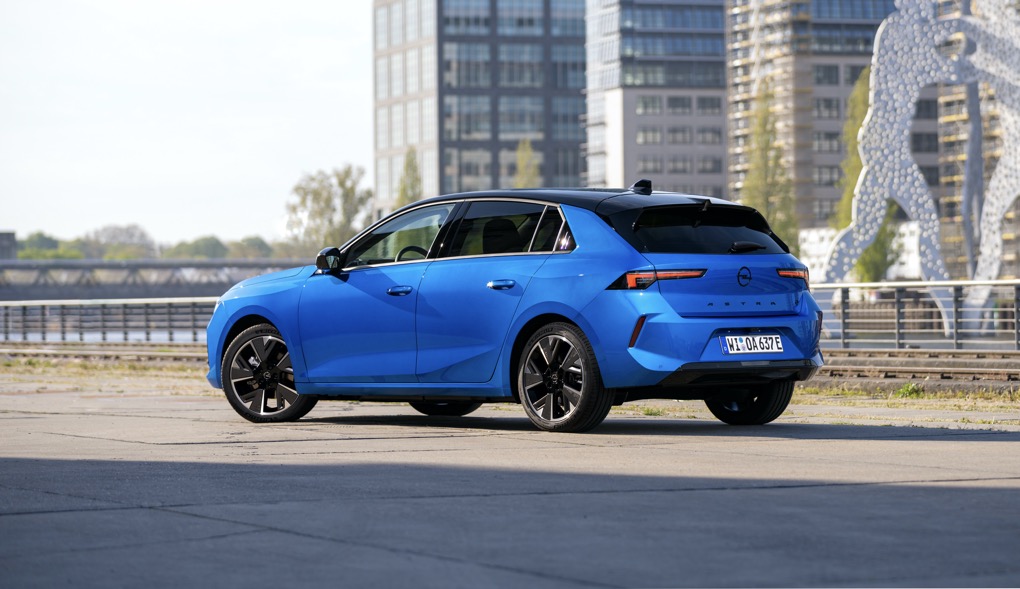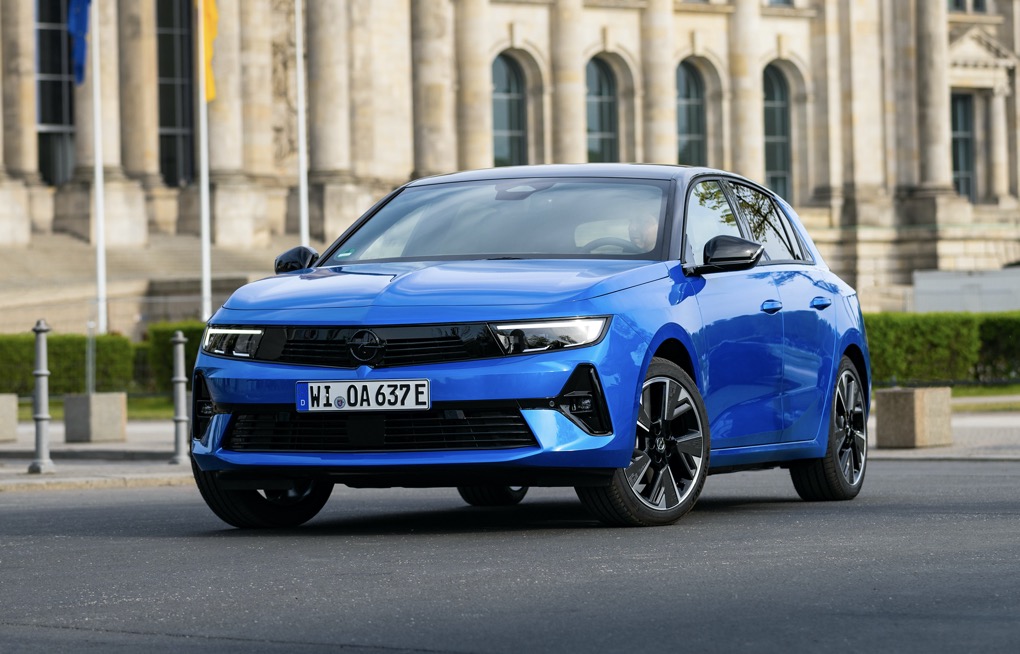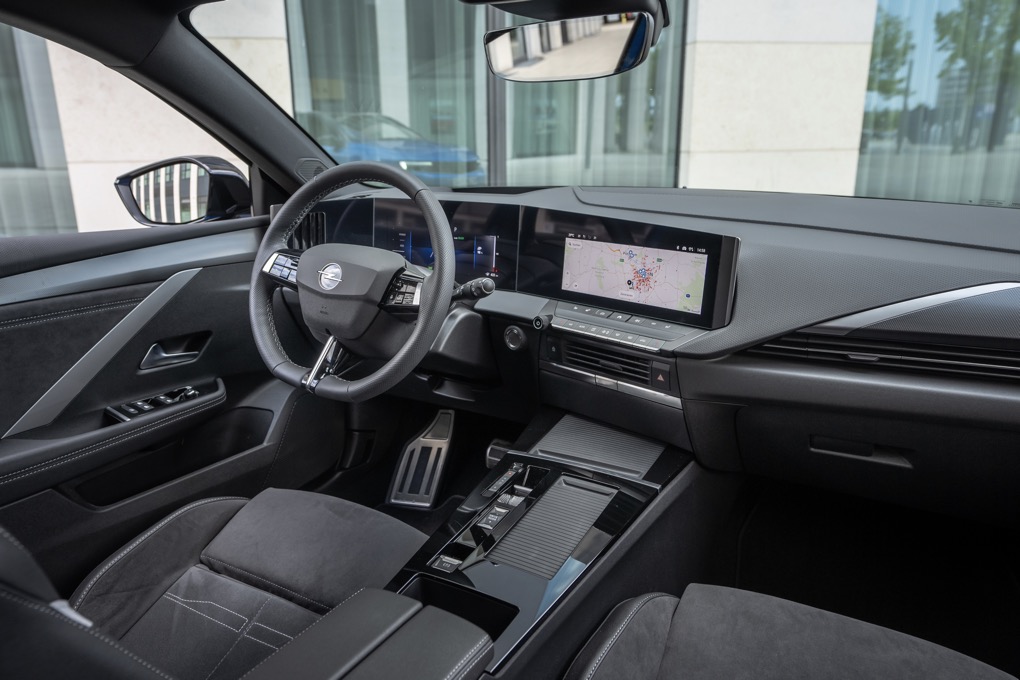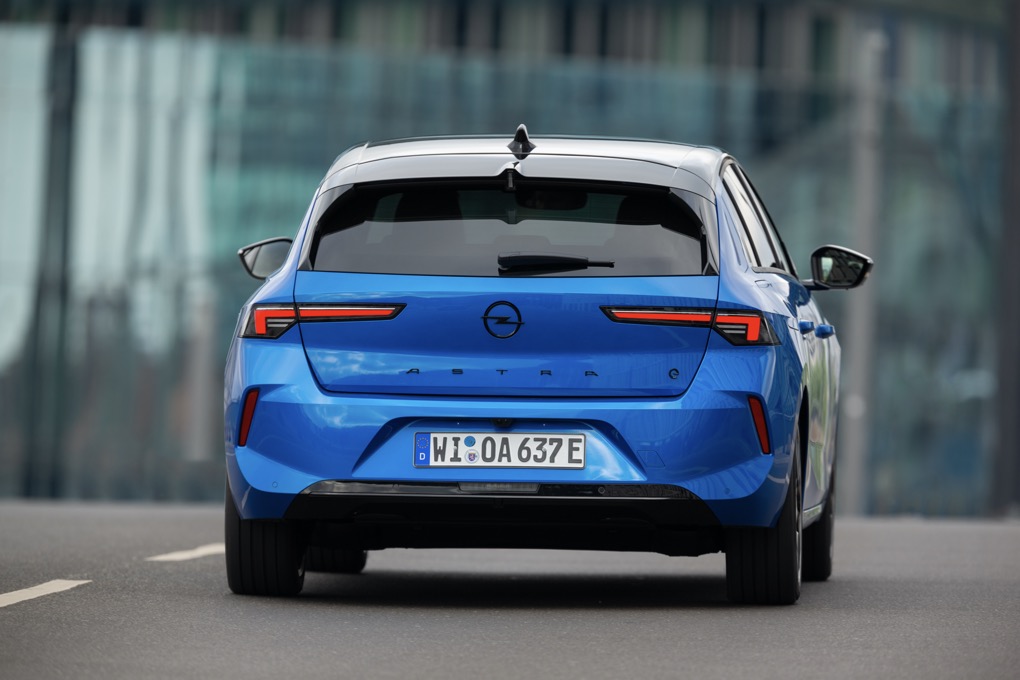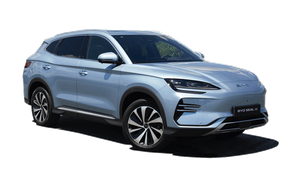On paper, the Vauxhall Astra Electric doesn't make a strong start. While arch rival VW and others developed electric cars specifically around the electric bits, Vauxhall electric models share their body with other powertrains - which results in a few compromises. Although slightly longer than the ID.3 at 4370mm, the Astra offers less space in the rear and has the smaller boot at 352 litres - which is also slightly smaller than an MG4 or Leaf and quite a lot less than a Kia Niro EV.
But Vauxhall makes a virtue out of this normality and may lure in a more conservative clientele with a pleasantly conventional looking car. The Astra does not look or drive like a like a spaceship, and where you have to rethink many competitors because the operation works almost exclusively via touchscreen and sensor buttons, there are still enough switches and buttons for all important the basic functions around the dashboard "Pure" panel.
Vauxhall Astra Electric battery, range and charging
Look at the spec sheet and the Astra's hand looks a little weak. The battery is a measly 51kWh and you'll only be able to charge it at a maximum of 100kW. But the electric bits are pretty sophisticated, and if the figures are to be believed, super efficient too.
It's the same powertrain we've already tried in the Jeep Avenger but in the sleeker Astra it results in a possible 258-miles of range according to the official figures. That means you be getting more than five miles for every kilowatt hour of power. That’s the same sort of efficiency as tiny city cars.
This is also partly due to a lower overall weight, energy-saving features such as a heat pump fitted as standard and smaller wheels than the competition. Although the basic version of the ID.3 has a 58 kWh battery, its range is just seven miles longer. And while it may not charge as quickly, the power you take on will get you further. On a big enough charger, should see 80% in just over half an hour
Vauxhall Astra Electric practicality and technology
The Astra might not have the biggest interior - especially in the back - but the driver gets a treat. The seat is super-comfy, and has been certified by the German Campaign For Healthier Backs no less. Our larger-proportioned testers found them perfect, while the more slight drivers on the team found them too hard.
Talking of rear ends, the boot on the hatch isn’t massive at 352-litres, but there’s a twist here; you’ll also be able to get the Astra as a Sports Tourer estate.
Most of the expected tech is there. Two 10-inch displays make up Vauxhall’s Pure Panel screens and there's a head-up display on the more expensive version. You get voice recognition, loads of driver assistance systems and the usual app to control charging and pre-conditioning the car on particularly hot or cold days too.
There's also wireless charging, front and back parking sensors, voice-activated sat-nav… it’s pretty well-equipped, especially in the Ultimate grade.
It also has insulation for peace and quiet when traveling and elaborate air purification - perfect if you are a hay-fever sufferer. Only when it comes to navigation does the Astra feel like a let-down. Although the system knows how long the battery lasts and warns you to stop to charge on long journeys, the driver has to use an app to see where to plug in. The competitors are more sophisticated.
Vauxhall Astra Electric performance and dynamics
The drive is another area where the Astra manages to raise itself above what the figures would suggest. It has one motor that drives the front wheels and it gets just 154bhp. That’s quite a lot less than most of the rivals. The ID.3, Born, Kia and MG for example all have 201bhp. The Renault has 217bhp – that’s 40% more.
That results in a 0-62mph time of 9.3 seconds, which is quite sedate for an electric car. The Renault is nearly two seconds faster.
But on the road, it doesn’t feel slow. Although the Renault and Cupra in particular are much sprightly, the Astra's lighter weight and lower driving position mean it feels noticeably sportier, more committed. Above all, the driver does not feel as far removed from the action as in many pure electric cars; instead, you grab the steering wheel and feel a driving pleasure that many electric cars cannot offer.
Vauxhall Astra Electric pricing
Talk about the prices and Vauxhall's bosses start to shift uncomfortably. The Astra Electric is slower than all of its key rivals. It has less equipment. It’s not a premium brand and has a smaller battery. It has a pretty basic warranty. So it must be cheaper, right?
Well, no. The company has improved matters since the car was first revealed by introducing a 'Design' trim level with less equipment for £34,945, but that's still more than rivals which have more power and battery capacity. The GS grade is £37,240 and the better-equipped ‘Ultimate’ is £39,395.
But a Tesla Model 3. It has a 305 mile range, a 5.8 second 0-60 time and charging which is twice as fast in that dedicated network. Its list price is £39,995 and there are usually cars in stock which are even less. And we won't even mention the £36,000 MG4 which offer either supercar performance (the XPower) or a 300 mile plus range. That makes the Astra a pretty difficult sell, unless you worry about insurance premiums.
That higher list price means that anyone choosing an Astra as a company car will pay more in tax too, even if the BIK rate is just 2% it will mean there is a difference of around £100 a year over something like an MG4.
There's better news for private customers, who will usually be able to access cheap-rate finance if they can stump up a big deposit. Again, shop around though and check out leasing - which is usually cheaper.
Vauxhall Astra Electric verdict
We were pleasantly surprised by the Astra. It's lower weight and high efficiency mean it is much better to drive than the figures suggest and will cost less to run too.
But it is compromised in other areas, with less space for passengers and luggage than most rivals. Thanks to price realignments it's a lot more competitive now than a year ago, but we'd still be expecting a good deal before signing on the dotted line.













